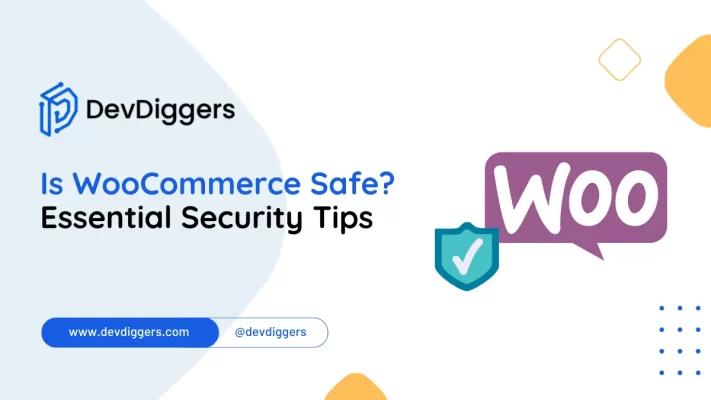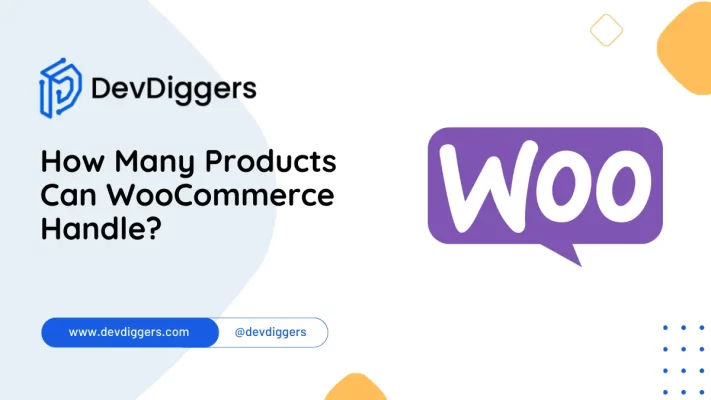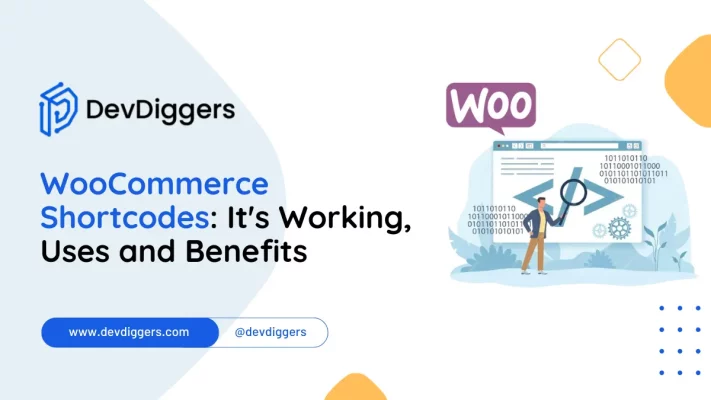Is WooCommerce PCI Compliant? Ensuring Safe Transactions
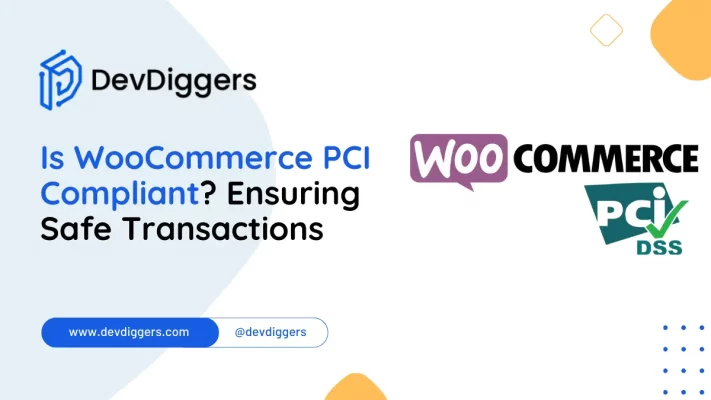
In eCommerce, where security is vital, the question “Is WooCommerce PCI compliant?” frequently arises. WooCommerce, one of the biggest online shop platforms, is inspected for compliance with Payment Card Industry Data Security Standard (PCI DSS) regulations.
To navigate this vital issue, explore WooCommerce’s architecture, security processes, and compliance with PCI regulations.
Join us in this blog as we dig into WooCommerce’s PCI compliance status, shedding light on its suitability as a secure eCommerce solution for businesses.
Table of Contents
What is PCI Compliance?
PCI compliance means following the Payment Card Industry Data Security Standard (PCI DSS), a set of rules to keep credit card information safe.
Big credit card companies made it to stop theft and fraud. Being PCI compliant means a company has put different security measures in place to protect credit card data.
This includes having secure networks, keeping cardholder information safe, regularly checking systems for problems, and having rules for how employees handle information.
Compliance shows that a company is serious about protecting sensitive information, making it harder for hackers to steal data, and keeping customers and the company safe.
Benefits of PCI Compliance
PCI compliance offers several benefits to businesses, including:
- Enhanced Security: Following PCI DSS guidelines, companies can implement robust security measures to protect sensitive payment card data. This reduces the risk of data breaches, which can lead to financial losses, damage to reputation, and legal repercussions.
- Customer Trust: Demonstrating PCI compliance reassures customers that their payment card information is handled securely. This increases trust and confidence in the business, increasing customer loyalty and repeat business.
- Legal Compliance: Many jurisdictions require businesses that process credit card payments to comply with PCI DSS regulations. Achieving compliance helps companies to meet legal requirements and avoid potential fines or penalties for non-compliance.
- Reduced Fraud: Implementing PCI-compliant security measures can help prevent unauthorized access to payment card data, reducing the likelihood of fraudulent transactions. This protects the business and its customers from financial losses and fraud-related disputes.
- Cost Savings: While achieving PCI compliance may involve upfront costs for implementing security measures and conducting assessments, it can ultimately result in long-term cost savings. By preventing data breaches and fraud, businesses avoid the substantial financial losses and expenses of resolving security incidents.
Overall, PCI compliance strengthens security, protects sensitive data, enhances customer trust, ensures legal compliance, reduces fraud risks, and contributes to business cost savings.
Is WooCommerce PCI Compliant?
“Is WooCommerce PCI compliant?” is a popular question among businesses considering this eCommerce platform, and the answer is Yes; WooCommerce can be made PCI (Payment Card Industry) compliant, but it requires careful setup and sticking to security standards.
WooCommerce itself is a plugin for WordPress that provides eCommerce functionality. To ensure PCI compliance with WooCommerce, you need to follow specific steps such as:
- Secure Hosting: Ensure your hosting provider meets PCI DSS (Data Security Standard) requirements.
- SSL Certificate: Implement SSL (Secure Sockets Layer) encryption to protect data transmission.
- Secure Payment Gateways: Use reputable payment gateways that are themselves PCI compliant.
- Regular Updates: Keep WooCommerce and WooCommerce extensions up-to-date to patch security vulnerabilities.
- Data Handling: Handle cardholder data securely, following PCI DSS guidelines.
- Firewalls and Security Measures: Implement firewalls and other security measures to protect against potential breaches.
- Regular Security Audits: Perform security audits to identify and address vulnerabilities.
- PCI Compliance Self-Assessment Questionnaire (SAQ): Complete the appropriate SAQ to validate compliance with PCI DSS.
Remember that achieving PCI compliance is an ongoing process requiring continuous monitoring and updating of security measures.
It’s essential to familiarize yourself with the specific requirements of PCI DSS and ensure that your WooCommerce setup meets those standards.
Additionally, seeking guidance from security professionals or consultants can be beneficial in ensuring compliance.
How to Make Your WooCommerce PCI Compliant
The simplest solution for “Is WooCommerce PCI compliant?” is to make it. Follow these efficient procedures that will help you make your WooCommerce PCI compliant.
1. Choose a PCI-Compliant Payment Gateway
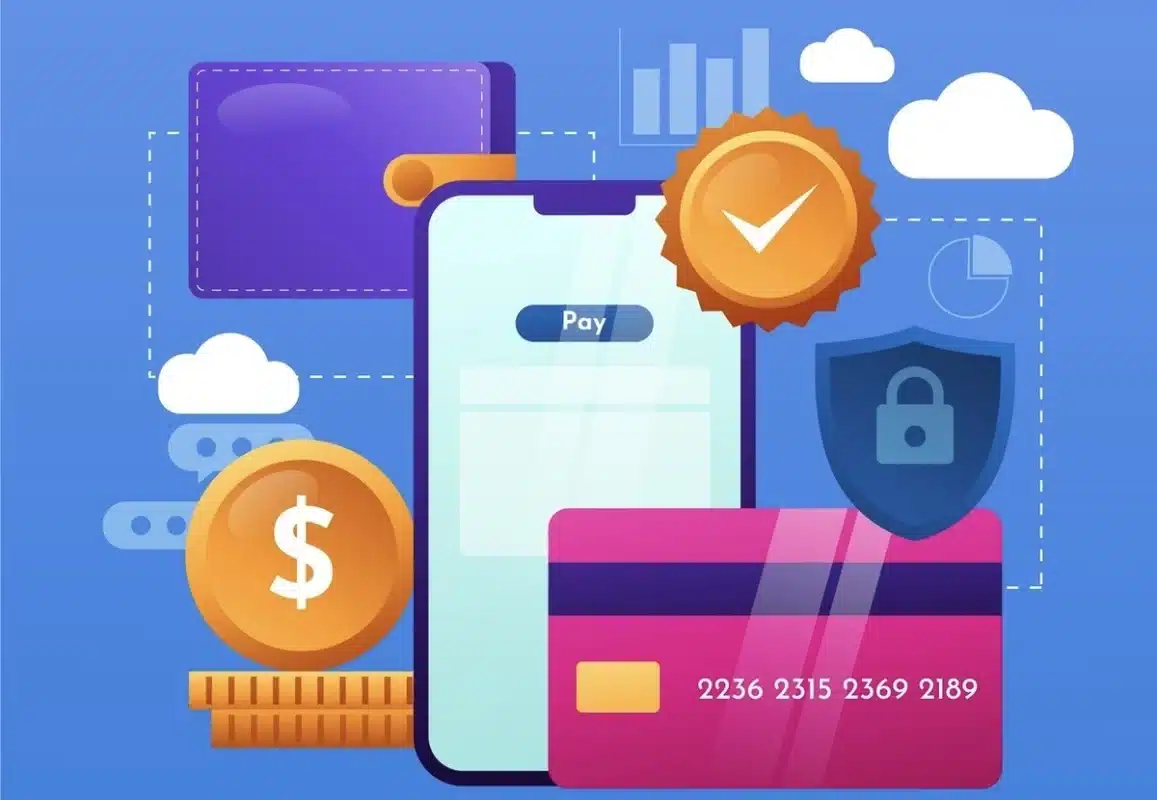
“Is WooCommerce PCI Compliant?” is a question frequently asked by merchants seeking to ensure the security of their online stores.
Meanwhile, WooCommerce is a robust eCommerce platform that can be compliant by carefully configuring and selecting PCI-compliant components. One critical aspect is choosing a PCI-compliant payment gateway.
Popular options like PayPal, Stripe, and Square typically meet PCI DSS (Payment Card Industry Data Security Standard) requirements, offering secure transaction processing and data handling.
Integrating one of these compliant gateways with your WooCommerce store enhances security and reduces the risk of unauthorized access to sensitive cardholder information.
It’s essential to understand that achieving PCI compliance involves a combination of measures, including secure hosting, SSL encryption, regular security audits, and employee training.
By addressing these factors comprehensively, you can ensure that your WooCommerce setup meets PCI compliance standards and provides a secure environment for online transactions.
2. Secure Hosting
Choosing a reliable and secure hosting provider is crucial for ensuring PCI compliance. Look for a hosting service specializing in eCommerce and explicitly state its compliance with PCI DSS requirements.
A reputable hosting provider will offer features such as dedicated firewalls, intrusion detection systems, regular security updates, and robust access controls.
Additionally, ensure the hosting environment is physically and digitally secure, with data centers equipped with advanced security measures like biometric access controls and surveillance systems.
Regularly monitor and audit your hosting environment to detect and address potential vulnerabilities or security breaches promptly.
By partnering with a secure hosting provider, you can create a strong foundation for your WooCommerce store’s security and compliance with PCI standards.
3. Implement SSL Encryption
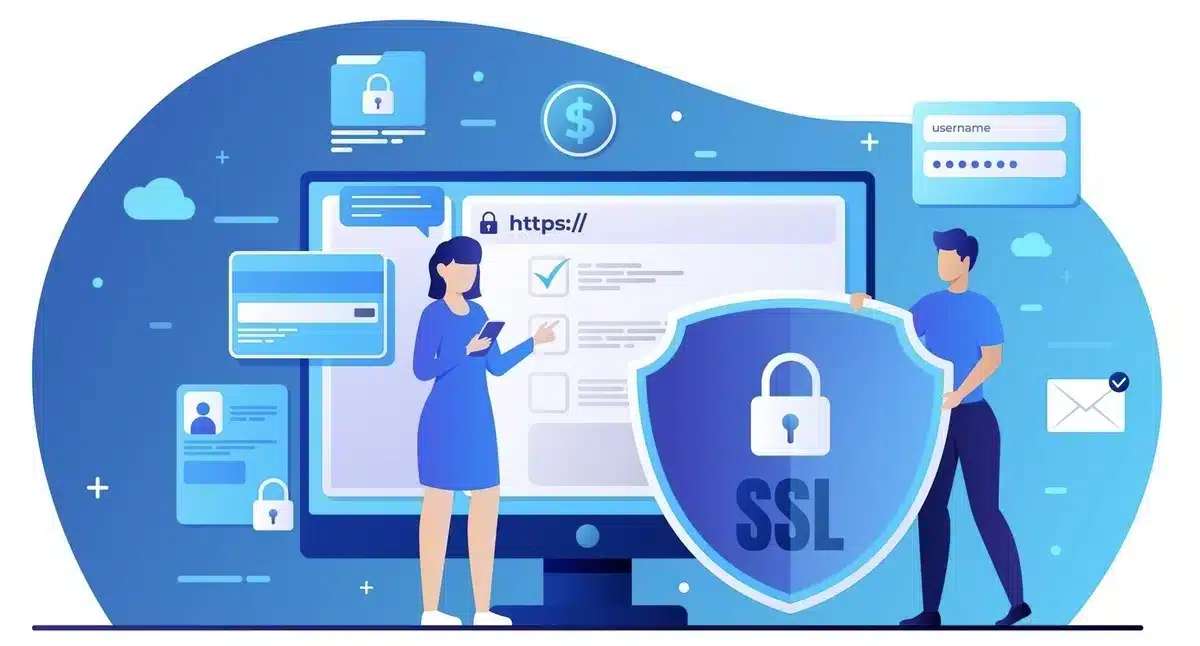
“Is WooCommerce PCI Compliant?” is a question often asked by eCommerce merchants aiming to ensure the security of their online stores.
One critical aspect in achieving PCI compliance for WooCommerce is the implementation of SSL encryption.
SSL (Secure Sockets Layer) encryption is pivotal for securing data transmission between customers’ browsers and the server.
By obtaining and configuring an SSL certificate from a trusted authority, your WooCommerce website can ensure that sensitive information, including credit card details, is encrypted during transactions.
This increases trust with customers and aligns with PCI DSS (Payment Card Industry Data Security Standard) requirements.
Regular maintenance of SSL certificates is essential to uphold compliance, as they need to be periodically renewed to sustain secure connections.
Therefore, while addressing the question “Is WooCommerce PCI Compliant,” integrating SSL encryption is a fundamental step in building your online store’s security posture.
4. Secure Configuration

“Is WooCommerce PCI Compliant” mainly depends on implementing a secure configuration. This pivotal step involves improving your WooCommerce platform with robust security measures to protect sensitive data and mitigate potential risks.
Begin by ensuring all user accounts, including administrative access, are protected with strong, unique passwords.
Incorporate two-factor authentication to add an extra layer of security, requiring users to provide a secondary form of verification before accessing critical areas.
Additionally, restrict access to administrative functions and sensitive data to authorized personnel only, thereby reducing the potential attack surface.
Regularly updating WooCommerce, themes, and plugins is essential to patch known security vulnerabilities and support your website’s defenses against potential threats.
By sticking to these best practices in secure configuration, you enhance the security posture of your WooCommerce platform, contributing significantly to achieving PCI compliance.
5. Payment Data Handling
“Is WooCommerce PCI Compliant?” is a common question among eCommerce merchants.
To ensure compliance with PCI DSS (Payment Card Industry Data Security Standard) requirements, effective handling of payment data within your WooCommerce setup is paramount.
First and foremost, it’s crucial to go for payment gateways that prioritize security and adhere to PCI standards.
Utilizing gateways that employ tokenization significantly reduces the risk associated with storing sensitive cardholder data on your servers.
Moreover, implementing robust encryption protocols like SSL (Secure Sockets Layer) ensures secure transmission of payment data between customers’ browsers and your server.
This encryption is vital in preventing unauthorized access to sensitive information during transmission.
Regularly reviewing and updating payment processing procedures are essential to align with evolving PCI DSS requirements and industry best practices.
By staying informed about changes in PCI standards, you can adjust your payment data handling practices accordingly, maintaining compliance and enhancing the security of your WooCommerce platform.
6. Regular Security Audits
Regular security audits are essential for maintaining PCI compliance in your WooCommerce platform. These audits involve systematic reviews of security measures, identifying vulnerabilities, and implementing necessary changes.
Conducted regularly, they examine server configurations, software versions, access controls, and data handling processes.
Vulnerability scanning tools and penetration testing may be used to identify weaknesses and simulate attacks.
Promptly addressing findings helps ensure ongoing compliance and strengthens the security of your eCommerce environment.
7. Employee Training

“Is WooCommerce PCI Compliant?” Employee training is crucial for ensuring your WooCommerce online store follows PCI rules. Train your team well on how to keep customer card details safe.
Highlight the importance of protecting sensitive information and teach them to spot and report suspicious activity.
Ensure everyone knows their job keeping the store secure, like handling payments properly and reacting quickly to security issues.
Regular training helps everyone stay up-to-date and ready to follow the rules. Also, consider doing practice exercises to see how well your team responds.
Focusing on training can make your store more secure and reduce the risk of problems with handling payment card information.
8. Compliance Documentation
Ensuring you have the correct documents is essential for making your WooCommerce store follow the PCI rules.
These documents prove that you’re sticking to the PCI DSS standards and taking good care of your customers’ card details.
What you need to write down includes your store’s payment rules, how you keep data safe, and what you do if something goes wrong.
Also, keep track of any security checks you do and fix any problems you find. Write down how you follow the PCI rules, like using strong passwords and encrypting data. Make sure you plan what to do if there’s a security issue.
And don’t forget to keep records of any training you give your staff on security stuff and any certificates you get to show you’re following the rules.
Having all these documents helps indicate that you’re serious about keeping your WooCommerce store safe and following the rules correctly.
Conclusion: Is WooCommerce PCI Compliant
In wrapping up the discussion on “Is WooCommerce PCI Compliant?,” it’s evident that while WooCommerce itself doesn’t inherently meet PCI standards, it can be made compliant through strategic measures.
By integrating with PCI-compliant payment gateways, ensuring secure hosting, implementing SSL encryption, following best practices for configuration, and maintaining thorough compliance documentation, WooCommerce merchants can effectively safeguard their customers’ payment card data.
Though achieving PCI compliance demands dedication, the benefits of customer trust, risk mitigation, and data security make it an essential pursuit for any WooCommerce store owner.
By understanding the requirements and taking proactive steps toward compliance, businesses can confidently harness the power of WooCommerce to deliver secure and reliable eCommerce experiences for their customers.
FAQs: Is WooCommerce PCI Compliant
Does using a payment gateway affect WooCommerce’s PCI compliance?
Yes, it does. When you integrate a payment gateway with WooCommerce, the compliance responsibility may shift to the payment gateway provider for certain aspects of PCI compliance. However, you’ll still need to ensure your WooCommerce store meets security requirements.
What happens if my WooCommerce store isn’t PCI compliant?
Non-compliance can result in fines, penalties, and even suspension of your ability to accept credit card payments. Additionally, data breaches can lead to reputation damage, loss of customer trust, and legal consequences.
Can using security plugins help with WooCommerce’s PCI compliance?
Yes, using security plugins for WordPress and WooCommerce can enhance your store’s security posture and help you meet PCI compliance requirements. Look for plugins that offer features like firewall protection, malware scanning, and secure payment processing.
Is WooCommerce a secure platform for eCommerce?
WooCommerce is a robust eCommerce platform, but its security ultimately depends on how well it’s configured, maintained, and integrated with secure payment gateways. By following best practices and prioritizing security measures, you can build a safe and compliant online store for your business.
Does WooCommerce offer built-in features to help with PCI compliance?
While WooCommerce doesn’t provide direct PCI compliance features, it offers a secure framework for eCommerce. You’ll need to implement additional security measures, such as SSL certificates, encryption, and secure payment gateways, to ensure compliance with PCI standards.

